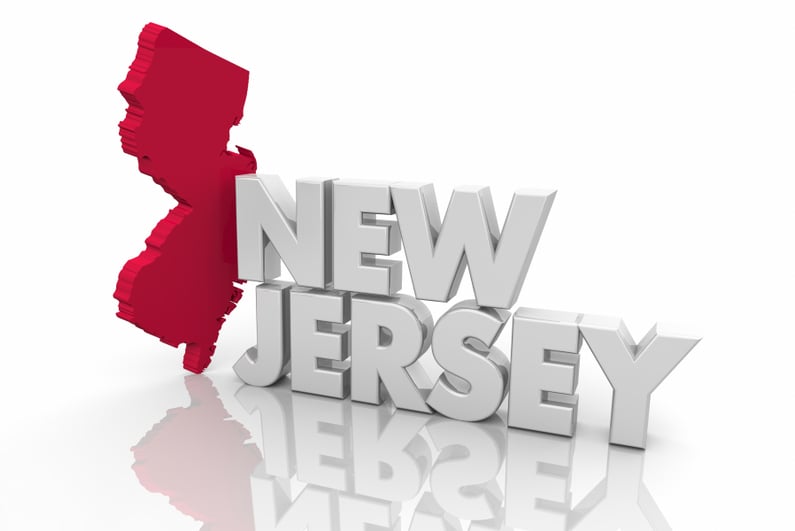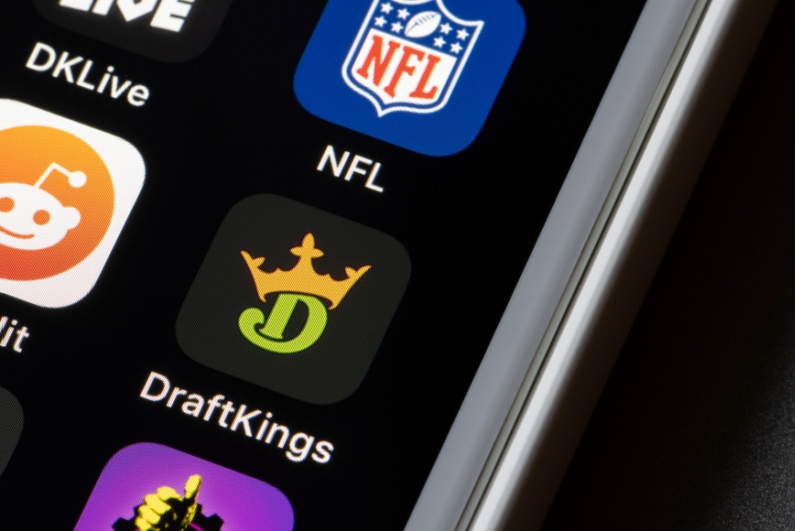Following its victory in the US Supreme Court appeal of America’s PASPA ban against single-event sports wagering in all US states except Nevada, New Jersey’s Monmouth Park seeks more than $150 million in damages from the five US-based sports leagues whose lawsuit against New Jersey and Monmouth Park blocked the launch of such wagering for several years.
New Jersey’s Monmouth Park Racetrack, one of the litigants in the state’s successful US Supreme Court appeal that resulted in the annulment of the PASPA ban on sports betting, has filed a motion for a judgment on an injunction bond posted by the United States’ major sports associations. The motion’s request for damages goes well beyond the $3.4 million bond posted by the leagues when they sued to block New Jersey’s plans to activate the state’s authorized sports-betting services, asking for an inexact sum in excess of $150m (£113m).
Monmouth Park’s motion, filed late on Thursday, May 24, targets the five sports leagues that opposed New Jersey in the years-long PASPA legal battle. Those five leagues, the National Football League (NFL), Major League Baseball (MLB), National Basketball Association (NBA), National Hockey League (NHL), and college’s National Collegiate Athletic Association (NCAA), triumphed in several lower-court decisions until losing the SCOTUS appeal, which invalidated the quarter-century-old PASPA law in its entirety.
Monmouth Park’s claim accuses each of the five leagues (and their commissioners or presidents) of making materially false in-court statements about the supposed detrimental impact of legalized sports betting, out-of-court conduct that has facilitated the spread of sports betting across the US, selective enforcement of PASPA, and overall bad faith.
The motion was filed on behalf of Monmouth Park’s formal business entity, the New Jersey Thoroughbred Horsemen’s Association, Inc. (NJTHA), by the track’s counsel, McElroy, Deutsch, Mulvaney, and Carpenter, LLP.
Heads of leagues named
The motion for judgment names the head of each of the five leagues and accuses them of offering “false in-court sworn statements”, with the leagues then turning around and facilitating the spread of wagering-related information as it served the leagues’ own interests.
Named in the motion are NFL Commissioner Roger Goodell, former NBA Commissioner David Stern, former MLB Commissioner Allan H. (“Bud”) Selig, NHL Commissioner Gary Bettman, and NCAA President Mark Emmert. Each of the five offered statements in conjunction with the leagues’ lawsuit against New Jersey and thus helped secure the injunction that was issued against New Jersey that barred the state from implementing its plans. That injunction also served as a de facto block against Monmouth Park, whose separate action against the leagues was later combined into the “Christie II” SCOTUS appeal regarding PASPA’s legality.
Monmouth Park’s motion for damages also cites such league-authorized developments as pre-game injury reports. According to the motion, those reports serve little purpose other than to solidify the sports lines that are supposedly illegal across almost the entire US, but which allegedly nurture tens of billions of dollars of underground wagering activity and, in turn, boost interest in the leagues’ games. For the NCAA, the Monmouth Park motion also mentions college basketball’s “March Madness” and claims the extravaganza and promotion of brackets is also part of a tacit betting-promotion scheme.
According to the motion: “The Leagues’ quest to prevent Monmouth Park from accepting bets on the Leagues’ games and the games of others first began in 2012 and did not stop until the Supreme Court’s May 14, 2018 decision forced them to do so. During the intervening years, the leagues’ actions nearly put Monmouth Park out of business, inflicted significant financial and emotional hardship on hundreds of innocent Monmouth Park workers, and jeopardized the continued viability of New Jersey’s entire equine industry, including its many horse farms and related open spaces. The leagues succeeded in blocking Monmouth Park from conducting sports betting by relying on what the Supreme Court decided is an unconstitutional statute and by submitting ten false sworn statements.”
Daily fantasy sports key
The Monmouth Park filing may force another serious examination of the legality of daily fantasy sports (DFS), which the motion asserts are strictly illegal offerings under PASPA. Numerous American pro sports teams have also entered into business partnerships with DFS operators and a handful of team owners have invested directly in the niche. The filing notes that 91% (29 of 32) of the NFL’s teams have entered into an agreement with one or both of the two largest DFS operators, DraftKings and FanDuel.
Though DFS’s legality arose from provisions within the US’s 2006 Unlawful Internet Gambling Enforcement Act (UIGEA) and its legality has been judged differently in various US states, Monmouth Park’ motions asserts that the entire niche was illegal under PASPA and thus represented a massive and hypocritical example of selective enforcement by the leagues and the US’s Department of Justice.
In an allegation that also tosses some heat Nevada’s way, the motion offers this:
In addition to making blatantly false sworn statements to this Court in their Verified Complaint and Commissioners’ Declarations, the Leagues have selectively enforced PASPA’s prohibitions thereby securing for themselves a sports betting dual monopoly with Nevada. Absent from the Leagues’ Complaint is any mention that PASPA prohibits not only state licensing or authorization by law of sports betting on “games” but also on “one or more performances of such athletes in such games.”
Even though betting on the “performances” of “athletes” was prohibited by PASPA, the Leagues did nothing to enforce PASPA’s prohibitions against fantasy bets being placed on their players’ “performances” in the Leagues’ games. To the contrary, the Leagues aggressively promoted – and even own – businesses that make millions from bets made on the “performances” of the Leagues’ “athletes” in the Leagues’ games.
Over $150M sought
Monmouth Park seeks damages in several forms for what it alleges is years of hypocritical and bad-faith conduct by the leagues that imperiled the park’s survival. The asked-for damages begin with $3.4m (£2.55m) bond posted by the leagues, in two separate $1.7M chunks, when they sued to stop New Jersey’s legalization plans. The motion notes that, while the State of New Jersey was permanently barred from recovering under the bond, the privately-owned NJTHA was not.
However, the track asserts that the actual damages are much, much higher. Included among many hundreds of supporting documentation are analyses from OnlinePokerReport and LegalSportsReport owner Chris Grove asserts that ” lost estimated sportsbook wins that Monmouth Park could have had during the period October 26, 2014 – May 14, 2018 is $149,977,173″.
The motion adds, “This sum does not include other damages Monmouth Park has suffered as the result of having been prevented from accepting sports bets”. Elsewhere in the motion for judgment, Monmouth Park seeks interest, attorneys’ fees, and court costs.



